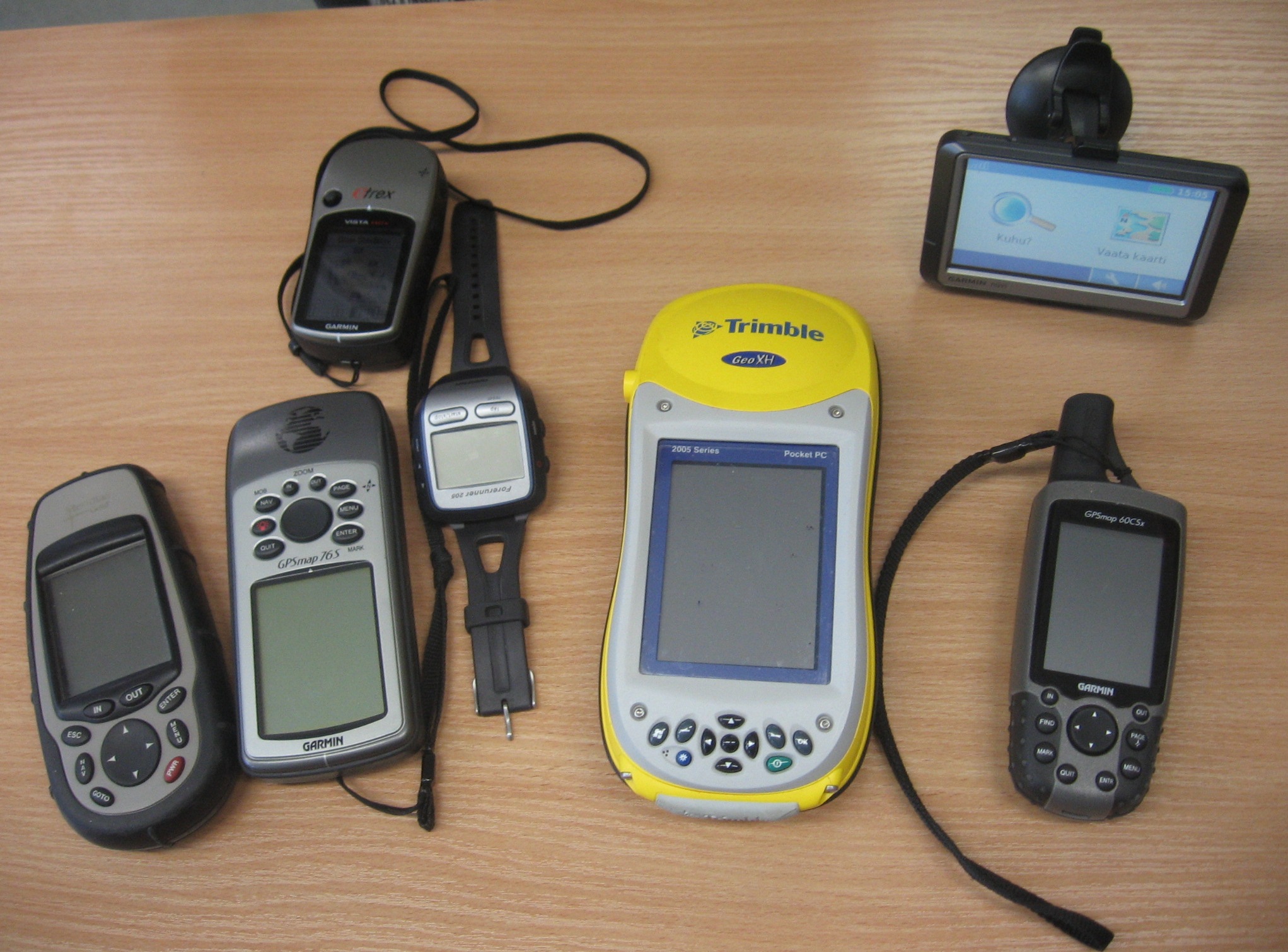|
Information And Communication Technologies For Environmental Sustainability
Information and communication technologies for environmental sustainability (ICT Ensure) is a general term referring to the application of information and communication technologies (ICTs) within the field of environmental sustainability. Information and communication technologies are acting as integrating and enabling technologies for the economy and they profoundly affect our society. Recent changes in ICT use globally have damaged the environment (in terms of waste and energy consumption etc.) but also have the potential to support environmental sustainability activities, such as the targets set within the Millennium Development Goal (MDG) number 7 (MDG7) to "ensure environmental sustainability". New technologies provide utilities for knowledge acquisition and awareness, early evaluation of new knowledge, reaching agreements and communication of progress in the interest of the human welfare. This includes ethical aspects of protecting human life as well as aspects of consumer ... [...More Info...] [...Related Items...] OR: [Wikipedia] [Google] [Baidu] |
Information And Communications Technology
Information and communications technology (ICT) is an extensional term for information technology (IT) that stresses the role of unified communications and the integration of telecommunications (telephone lines and wireless signals) and computers, as well as necessary enterprise software, middleware, storage and audiovisual, that enable users to access, store, transmit, understand and manipulate information. ICT is also used to refer to the convergence of audiovisuals and telephone networks with computer networks through a single cabling or link system. There are large economic incentives to merge the telephone networks with the computer network system using a single unified system of cabling, signal distribution, and management. ICT is an umbrella term that includes any communication device, encompassing radio, television, cell phones, computer and network hardware, satellite systems and so on, as well as the various services and appliances with them such as video conferencing and ... [...More Info...] [...Related Items...] OR: [Wikipedia] [Google] [Baidu] |
ICT In Climate Change
ICT may refer to: Sciences and technology * Information and communications technology * Image Constraint Token, in video processing * Immunochromatographic test, a rapid immunoassay used to detect diseases such as anthrax * In-circuit test, in electronics * Inflammation of connective tissue, in medicine * Insulin coma therapy, a form of psychiatric treatment Places * Islamabad Capital Territory, Pakistan * Wichita Dwight D. Eisenhower National Airport, Kansas, US (IATA airport code ICT) Agencies, businesses and organizations Government agencies * Costa Rican Tourism Board ( es, Instituto Costarricense de Turismo, links=no) * Information and Communication Technology Authority, a Kenyan Government-owned corporation Other organizations * Institute for Creative Technologies, University of Southern California * Institute of Chemical Technology, Mumbai, India * International Campaign for Tibet, headquartered in Washington, DC * International Computers and Tabulators, a British comp ... [...More Info...] [...Related Items...] OR: [Wikipedia] [Google] [Baidu] |
Infocommunications
Infocommunications is the natural expansion of ''telecommunications'' with ''information processing'' and ''content handling'' functions including all types of ''electronic communications'' (fixed and mobile telephony, data communications, media communications, broadcasting, etc.) on a common digital technology base, mainly through ''Internet technology''.Sallai, Gy.: Defining Infocommunications and Related Terms. Acta Polytechnica Hungarica (ISSN 1785-8860), Vol. 9, No. 6, 2012. pp. 5-15. http://www.uni-obuda.hu/journal/Sallai_38.pdf History The term Infocommunications, or in short form, Infocom(s) or Infocomm(s) first emerged in the beginning of eighties at scientific conferences and then was gradually adopted in the 1990s by the players of telecommunications sector, including manufacturers, service providers, regulatory authorities and international organizations to clearly express their participation in the convergence process of the telecommunications and information technology ... [...More Info...] [...Related Items...] OR: [Wikipedia] [Google] [Baidu] |
Information Age
The Information Age (also known as the Computer Age, Digital Age, Silicon Age, or New Media Age) is a historical period that began in the mid-20th century. It is characterized by a rapid shift from traditional industries, as established during the Industrial Revolution, to an economy centered on information technology. The onset of the Information Age has been linked to the development of the transistor in 1947, the optical amplifier in 1957, and Unix time, which began on January 1, 1970 and serves as the basis for Coordinated Universal Time and the Network Time Protocol. These technological advances have had a significant impact on the way information is processed and transmitted. According to the United Nations Public Administration Network, the Information Age was formed by capitalizing on computer microminiaturization advances, which led to modernized information systems and internet communications as the driving force of social evolution. Overview of early development ... [...More Info...] [...Related Items...] OR: [Wikipedia] [Google] [Baidu] |
Natural Resource Management
Natural resource management (NRM) is the management of natural resources such as land, water, soil, plants and animals, with a particular focus on how management affects the quality of life for both present and future generations ( stewardship). Natural resource management deals with managing the way in which people and natural landscapes interact. It brings together natural heritage management, land use planning, water management, bio-diversity conservation, and the future sustainability of industries like agriculture, mining, tourism, fisheries and forestry. It recognizes that people and their livelihoods rely on the health and productivity of our landscapes, and their actions as stewards of the land play a critical role in maintaining this health and productivity. Natural resource management specifically focuses on a scientific and technical understanding of resources and ecology and the Life-supporting capacity of those resources. Environmental management is similar to n ... [...More Info...] [...Related Items...] OR: [Wikipedia] [Google] [Baidu] |
Climate Change
In common usage, climate change describes global warming—the ongoing increase in global average temperature—and its effects on Earth's climate system. Climate change in a broader sense also includes previous long-term changes to Earth's climate. The current rise in global average temperature is more rapid than previous changes, and is primarily caused by humans burning fossil fuels. Fossil fuel use, deforestation, and some agricultural and industrial practices increase greenhouse gases, notably carbon dioxide and methane. Greenhouse gases absorb some of the heat that the Earth radiates after it warms from sunlight. Larger amounts of these gases trap more heat in Earth's lower atmosphere, causing global warming. Due to climate change, deserts are expanding, while heat waves and wildfires are becoming more common. Increased warming in the Arctic has contributed to melting permafrost, glacial retreat and sea ice loss. Higher temperatures are also causing m ... [...More Info...] [...Related Items...] OR: [Wikipedia] [Google] [Baidu] |
Biodiversity
Biodiversity or biological diversity is the variety and variability of life on Earth. Biodiversity is a measure of variation at the genetic (''genetic variability''), species (''species diversity''), and ecosystem (''ecosystem diversity'') level. Biodiversity is not distributed evenly on Earth; it is usually greater in the tropics as a result of the warm climate and high primary productivity in the region near the equator. Tropical forest ecosystems cover less than 10% of earth's surface and contain about 90% of the world's species. Marine biodiversity is usually higher along coasts in the Western Pacific, where sea surface temperature is highest, and in the mid-latitudinal band in all oceans. There are latitudinal gradients in species diversity. Biodiversity generally tends to cluster in hotspots, and has been increasing through time, but will be likely to slow in the future as a primary result of deforestation. It encompasses the evolutionary, ecological, and cultural ... [...More Info...] [...Related Items...] OR: [Wikipedia] [Google] [Baidu] |
Agriculture
Agriculture or farming is the practice of cultivating plants and livestock. Agriculture was the key development in the rise of sedentary human civilization, whereby farming of domesticated species created food surpluses that enabled people to live in cities. The history of agriculture began thousands of years ago. After gathering wild grains beginning at least 105,000 years ago, nascent farmers began to plant them around 11,500 years ago. Sheep, goats, pigs and cattle were domesticated over 10,000 years ago. Plants were independently cultivated in at least 11 regions of the world. Industrial agriculture based on large-scale monoculture in the twentieth century came to dominate agricultural output, though about 2 billion people still depended on subsistence agriculture. The major agricultural products can be broadly grouped into foods, fibers, fuels, and raw materials (such as rubber). Food classes include cereals (grains), vegetables, fruits, cooking oils, meat, milk, ... [...More Info...] [...Related Items...] OR: [Wikipedia] [Google] [Baidu] |
ICT In Agriculture
Information and communication technology in agriculture (ICT in agriculture), also known as e-agriculture, focuses on the enhancement of agricultural and rural development through improved information and communication processes. More specifically, e-agriculture involves the conceptualization, design, development, evaluation and application of innovative ways to use information and communication technologies (ICTs) in the rural domain, with a primary focus on agriculture. ICT includes devices, networks, mobiles, services and applications; these range from innovative Internet-era technologies and sensors to other pre-existing aids such as fixed telephones, televisions, radios and satellites. Provisions of standards, norms, methodologies, and tools as well as development of individual and institutional capacities, and policy support are all key components of e-agriculture. Many ICT in agriculture or e-agriculture interventions have been developed and tested around the world to help ... [...More Info...] [...Related Items...] OR: [Wikipedia] [Google] [Baidu] |
ICT For Biodiversity
ICT may refer to: Sciences and technology * Information and communications technology * Image Constraint Token, in video processing * Immunochromatographic test, a rapid immunoassay used to detect diseases such as anthrax * In-circuit test, in electronics * Inflammation of connective tissue, in medicine * Insulin coma therapy, a form of psychiatric treatment Places * Islamabad Capital Territory, Pakistan * Wichita Dwight D. Eisenhower National Airport, Kansas, US (IATA airport code ICT) Agencies, businesses and organizations Government agencies * Costa Rican Tourism Board ( es, Instituto Costarricense de Turismo, links=no) * Information and Communication Technology Authority, a Kenyan Government-owned corporation Other organizations * Institute for Creative Technologies, University of Southern California * Institute of Chemical Technology, Mumbai, India * International Campaign for Tibet, headquartered in Washington, DC * International Computers and Tabulators, a British comp ... [...More Info...] [...Related Items...] OR: [Wikipedia] [Google] [Baidu] |
ICT And Sustainable Use Of Natural Resources
ICT may refer to: Sciences and technology * Information and communications technology * Image Constraint Token, in video processing * Immunochromatographic test, a rapid immunoassay used to detect diseases such as anthrax * In-circuit test, in electronics * Inflammation of connective tissue, in medicine * Insulin coma therapy, a form of psychiatric treatment Places * Islamabad Capital Territory, Pakistan * Wichita Dwight D. Eisenhower National Airport, Kansas, US (IATA airport code ICT) Agencies, businesses and organizations Government agencies * Costa Rican Tourism Board ( es, Instituto Costarricense de Turismo, links=no) * Information and Communication Technology Authority, a Kenyan Government-owned corporation Other organizations * Institute for Creative Technologies, University of Southern California * Institute of Chemical Technology, Mumbai, India * International Campaign for Tibet, headquartered in Washington, DC * International Computers and Tabulators, a British comp ... [...More Info...] [...Related Items...] OR: [Wikipedia] [Google] [Baidu] |
ICT In Energy Consumption/Efficiency
ICT may refer to: Sciences and technology * Information and communications technology * Image Constraint Token, in video processing * Immunochromatographic test, a rapid immunoassay used to detect diseases such as anthrax * In-circuit test, in electronics * Inflammation of connective tissue, in medicine * Insulin coma therapy, a form of psychiatric treatment Places * Islamabad Capital Territory, Pakistan * Wichita Dwight D. Eisenhower National Airport, Kansas, US (IATA airport code ICT) Agencies, businesses and organizations Government agencies * Costa Rican Tourism Board ( es, Instituto Costarricense de Turismo, links=no) * Information and Communication Technology Authority, a Kenyan Government-owned corporation Other organizations * Institute for Creative Technologies, University of Southern California * Institute of Chemical Technology, Mumbai, India * International Campaign for Tibet, headquartered in Washington, DC * International Computers and Tabulators, a British comp ... [...More Info...] [...Related Items...] OR: [Wikipedia] [Google] [Baidu] |





